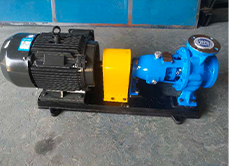Occitan
- Afrikaans
- Albanian
- Amharic
- Arabic
- Armenian
- Azerbaijani
- Basque
- Belarusian
- Bengali
- Bosnian
- Bulgarian
- Catalan
- Cebuano
- Corsican
- Croatian
- Czech
- Danish
- Dutch
- English
- Esperanto
- Estonian
- Finnish
- French
- Frisian
- Galician
- Georgian
- German
- Greek
- Gujarati
- Haitian Creole
- hausa
- hawaiian
- Hebrew
- Hindi
- Miao
- Hungarian
- Icelandic
- igbo
- Indonesian
- irish
- Italian
- Japanese
- Javanese
- Kannada
- kazakh
- Khmer
- Rwandese
- Korean
- Kurdish
- Kyrgyz
- Lao
- Latin
- Latvian
- Lithuanian
- Luxembourgish
- Macedonian
- Malgashi
- Malay
- Malayalam
- Maltese
- Maori
- Marathi
- Mongolian
- Myanmar
- Nepali
- Norwegian
- Norwegian
- Occitan
- Pashto
- Persian
- Polish
- Portuguese
- Punjabi
- Romanian
- Russian
- Samoan
- Scottish Gaelic
- Serbian
- Sesotho
- Shona
- Sindhi
- Sinhala
- Slovak
- Slovenian
- Somali
- Spanish
- Sundanese
- Swahili
- Swedish
- Tagalog
- Tajik
- Tamil
- Tatar
- Telugu
- Thai
- Turkish
- Turkmen
- Ukrainian
- Urdu
- Uighur
- Uzbek
- Vietnamese
- Welsh
- Bantu
- Yiddish
- Yoruba
- Zulu
Telephone: +86 13120555503
Email: frank@cypump.com
Nov . 09, 2024 01:39 Back to list
Reliable and Efficient Solutions for Water Submersible Pump Applications in Various Environments
Understanding Water Submersible Pumps Applications and Benefits
Water submersible pumps are indispensable tools in various sectors, effectively transferring, elevating, and managing water in numerous situations. Unlike traditional pumps that work above the water surface, submersible pumps are designed to be submerged in the fluid they are pumping. This unique feature allows for efficient operation and enhanced performance in situations where other pumps struggle.
Working Principle
The working principle of a submersible pump involves a robust electric motor that drives the pump mechanism while it is immersed in water. Typically, these pumps consist of a sealed motor, an impeller, and a diffuser, enabling them to push water to the surface efficiently. When the pump is submerged, it can generate greater pressure and move larger volumes of water as it operates directly in the fluid environment.
Applications of Water Submersible Pumps
Water submersible pumps find applications in various fields, ranging from personal household use to large-scale industrial operations
1. Residential Use Many homeowners utilize submersible pumps for groundwater extraction, especially in areas prone to flooding or where groundwater is the primary source of water. These pumps are often used in basements to remove excess water and prevent damage.
2. Agriculture In the agricultural sector, submersible pumps play a pivotal role in irrigation systems. Farmers depend on these pumps to draw water from wells or natural sources to irrigate crops, ensuring consistent and reliable water supply for optimal growth.
3. Construction Sites In construction, dewatering is a critical process. Submersible pumps are used to remove accumulated water from excavations and foundation works, allowing construction to proceed uninterrupted.
4. Industrial Applications Industries often use submersible pumps in manufacturing processes, wastewater management, and fluid handling operations. These pumps efficiently manage waste fluids and ensure that industrial processes run smoothly.
water submersible pump

5. Firefighting Submersible pumps can also be deployed for firefighting purposes, where they can quickly draw water from natural bodies like lakes or ponds, making them essential tools for emergency response teams.
Advantages of Submersible Pumps
Water submersible pumps offer several advantages over traditional pumps
- High Efficiency Because they operate immersed in the fluid, submersible pumps can generate higher pressure and move water more effectively. This efficiency translates to lower energy costs over time.
- Compact Design Submersible pumps are generally more compact than above-ground pumps, taking up less space and being easier to transport and install.
- Reduced Noise Levels These pumps operate quietly since they are submerged, minimizing noise pollution and making them suitable for residential areas.
- Lower Installation Costs Given their design, submersible pumps often require less complexity in installation compared to traditional pumps, lowering overall installation costs and time.
- Durability Many submersible pumps are constructed from corrosion-resistant materials, allowing them to withstand harsh environments while requiring less maintenance.
Conclusion
In summary, water submersible pumps are vital tools in both domestic and industrial applications. Their innovative design enables them to operate efficiently in numerous environments, from residential basements to extensive agricultural fields and challenging construction sites. As we face increasing challenges related to water management and sustainability, the significance of submersible pumps is likely to grow. Investing in quality submersible pumps not only enhances operational efficiency but also contributes to better water management practices across various sectors.
-
Custom Drilling Mud and Slurry Pump Supplier - High Efficiency, Tailored Solutions
NewsJun.10,2025
-
Supply Vertical Submersible Sewage Pump High-Efficiency WQ/QW Pumps Supplier
NewsJun.10,2025
-
Premium Sewage Ejection System & Pumps Efficient Waste Removal
NewsJun.09,2025
-
Premium Wholesale Slurry Pump Impellers Durable & Efficient Slurry Handling
NewsJun.09,2025
-
Top Sewage Pump Companies Durable Industrial Solutions for Efficiency
NewsJun.09,2025
-
Heavy Duty Slurry Pumps - OEM High Performance & Bulk Wholesale
NewsJun.09,2025










